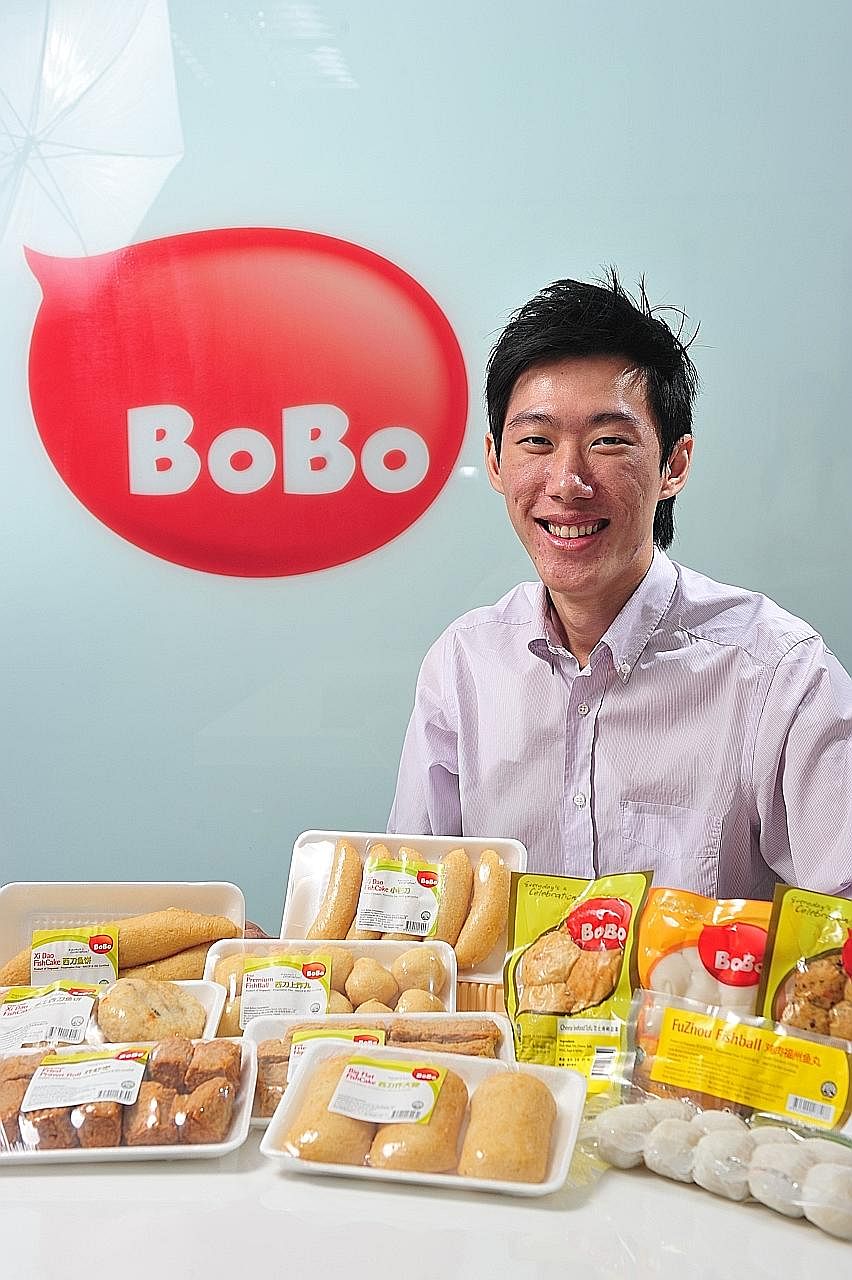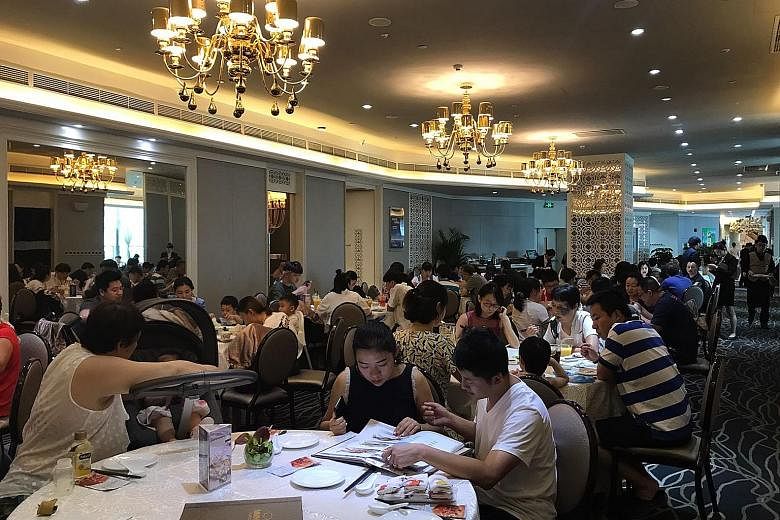Singapore food brands are cooking up a storm in China. Local food firms are riding on the Chinese consumer boom, with people becoming more health conscious and increasingly seeking out high-quality international flavours.
The potential of China's huge market more than makes up for the challenges, which include keeping food quality consistent and dealing with regulatory hurdles, companies say.
China remains one of the top markets for Singapore companies in general, including food companies, says Mr Ho Chee Hin, group director of International Enterprise (IE) Singapore's China group. This comes as the country is on track to become the world's largest consumer market by next year.
"Its huge domestic market, with consumers willing to pay for quality food and try new concepts, makes it very attractive to our food players," Mr Ho adds.
"Furthermore, it is relatively near to Singapore and there are clear cultural similarities. Singapore companies have a certain comfort level in exploring this market, especially since we started building business relations many years ago."
IE - which is merging with Spring Singapore to form the Enterprise Singapore agency - has worked with about 25 Singapore food companies entering Shanghai, Beijing and Guangzhou.

Restaurant group Jumbo is among the Singapore companies tapping prospects in China. The company first ventured into China in November 2013 with the opening of its first Jumbo Seafood outlet in Shanghai.
"We decided to first move into Shanghai because of its large population size of more than 24 million, as well as the city's growing affluence and sophistication of its middle class who are widely exposed to and receptive of new culinary pursuits," says a Jumbo spokesman.
The company subsequently opened two more Jumbo Seafood restaurants in Shanghai as well as one in Beijing, which opened in July.
Its China operations accounted for about $20 million, or 14.6 per cent, of total revenue in the 2016 financial year up from a revenue contribution of 8.5 per cent in the preceding year.
Another Singapore company looking to ride the Chinese consumer wave is Ha Li Fa, a home-grown firm known for its BoBo brand of fishballs.
It moved into China in 2013 and BoBo fishballs are now available in middle- to high-end supermarkets as well as e-commerce platforms like JD.com and Taobao.
"There was rising food safety awareness among consumers as well as a growing trend of health consciousness. Thus there was demand for safer and imported food," says Mr Randall Ang, business development director at Ha Li Fa.
He added that Singapore has a reputation for high levels of food safety and hygiene.
China's advanced logistics network - which can deliver small quantities of frozen items almost anywhere in the country - also helped the company grow its customer base, Mr Ang notes.
Every overseas market comes with its own set of challenges, however, and China is no different.
Mr Ang says importation and labelling requirements are difficult to fulfil as they vary across jurisdictions.
"Another challenge is that our BoBo fishballs are generally much more expensive than their local ones. Hence it is extremely difficult for us to reach out to the mass market where the volume is. We may have to invest in production facilities in China in order to better compete with the local manufacturers.
"We saw a few industry players in China growing very fast supported by the large market and some have even been publicly listed. With such financial clout and professional management, we will have to work harder in order to compete," Mr Ang adds.
The Jumbo spokesman said ensuring consistency in food quality and service is a key challenge.
"We dedicate a lot of time and resources to train and build a local team of managers and chefs. We import all our crabs and much of the other seafood from countries such as Sri Lanka and the Philippines and our spices from Singapore and Malaysia," the spokesman says, adding that the company also produces sauces, marinades and pastes in its Singapore central kitchen.
Jumbo intends to open one to two more outlets in Shanghai by 2019 and is also exploring prospects in other major cities.
It is also looking into joint ventures and franchising opportunities in smaller Chinese cities.
Ha Li Fa is also keen to ramp up its presence in China, Mr Ang says.
"Fishballs are usually eaten only in winter in China. We are still thinking of ways to increase demand in summer.
"We hope to continue promoting local hawker food like fishball noodles in China, together with agencies like the Singapore Tourism Board."


